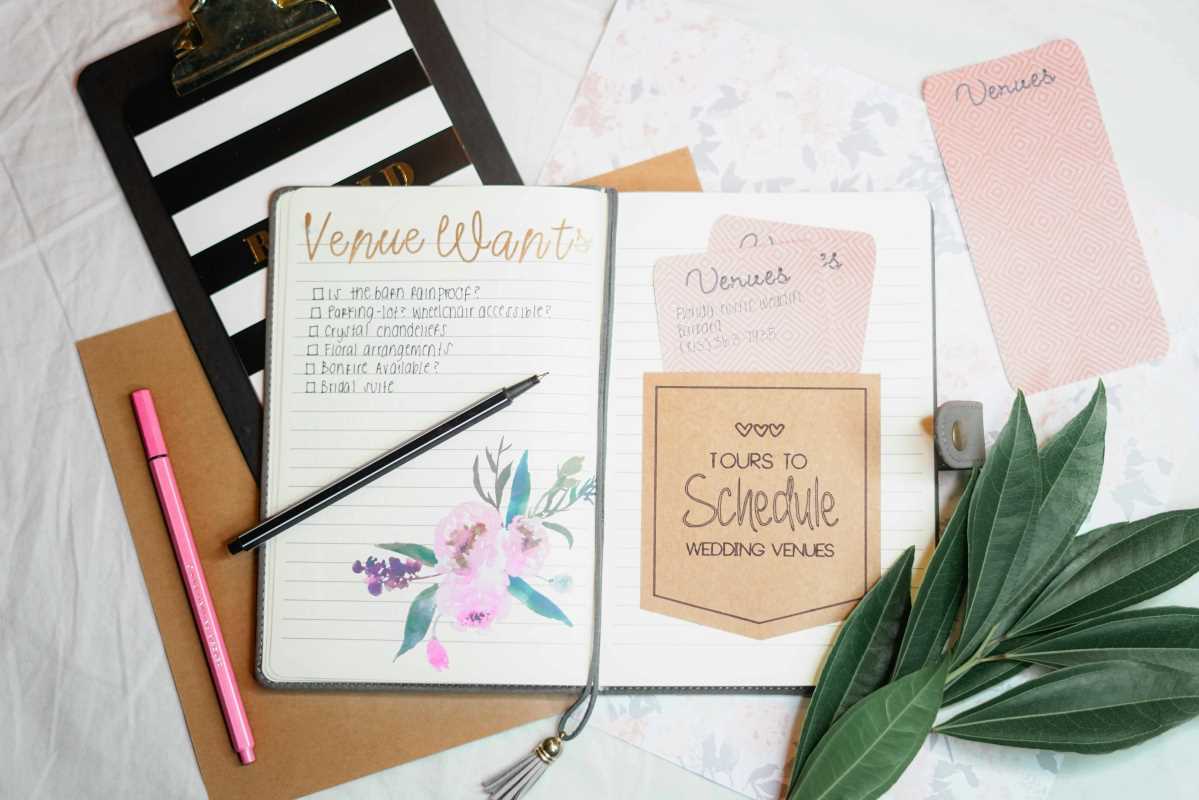Wedding planning is an exciting time filled with dreams of a perfect day, but it’s no secret that it can also bring its fair share of stress. From guest lists to budgets to family input, conflicts can arise quicker than you imagined, leaving both you and your partner feeling overwhelmed. These challenges are normal, but with the right strategies, they can be handled gracefully. Here’s how to ensure your wedding planning process remains a joyous and memorable chapter in your life together.
1. Start with Open Communication
Wedding planning can magnify differences, but open and honest communication is your greatest tool in preventing arguments or misunderstandings. Before making decisions, sit down with your partner to discuss what you each envision for the day. Understanding each other’s priorities ensures you’re aligned from the very beginning.
Tips for better communication:
- Listen actively: Rather than thinking about how to respond, focus on understanding your partner’s feelings and preferences.
- Identify non-negotiables: Discuss which aspects of the wedding are most important to each of you. For example, one may prioritize a live band while the other prefers an intimate guest list.
- Use “we” statements: Replace “I want” with “What works for us?” to keep the conversation collaborative instead of competitive.
Example: If you’re feeling disappointed about a suggestion, instead of saying, “That idea is terrible,” try, “I see where you’re coming from, but I’d love to explore some other options too.”
Pro Tip: Schedule regular “wedding check-ins.” Dedicate uninterrupted time to discuss plans, so important ideas or concerns don’t come out during other moments of tension.
2. Stay United in the Face of Family Expectations
One of the most common sources of conflict during wedding planning comes from family input. Whether it’s a parent insisting on inviting a long-lost cousin or a loved one pushing for a traditional element that doesn’t resonate with you, family expectations can feel overwhelming. The key? Standing united as a couple.
How to handle family dynamics:
- Set boundaries early: Define which decisions are yours to make as a couple versus where family input will be considered. For example, you may welcome help with catering but handle the guest list yourselves.
- Be kind but firm: For example, “We appreciate your input, but we’ve already decided to keep the ceremony small so it feels more personal to us.”
- Delegate tasks: Give family members specific, manageable roles that don’t interfere with your bigger decisions. Asking a parent to oversee the rehearsal dinner or a sibling to coordinate favors lets them stay involved without overstepping.
Example: If your mother insists on adding traditional elements you’re not comfortable with, a response like, “We love your ideas, but we’ve decided to follow a minimalist theme that reflects us as a couple,” reinforces your choices while respecting her opinion.
Pro Tip: Present decisions as a team. Statements like, “We’ve decided…” create less room for negotiation and emphasize that you and your partner are on the same page.
3. Manage Differing Opinions as a Couple
Conflict between you and your partner can happen too, even with the best of intentions. Perhaps one of you envisions a grand celebration while the other dreams of a simple backyard wedding. These differences don’t have to snowball into arguments.
How to find middle ground:
- Compromise creatively: If one partner wants a large celebration and the other prefers something intimate, consider a smaller ceremony with a larger reception afterward.
- Focus on shared goals: Remind each other that the true purpose of your wedding is to celebrate love, not to create a picture-perfect event.
- Be flexible with details: It’s okay to blend visions! For example, combining elegant décor with a casual dinner evokes elements from both preferences.
Example: If one partner insists on a traditional banquet hall and the other wants a beach wedding, look into venues by the water that offer both indoor and outdoor spaces.
Pro Tip: Keep a “big-picture board” with reminders like, “Celebrate love and our families coming together,” to stay grounded when disagreements arise over smaller details.
4. Stick to Your Budget Together
Money is one of the most sensitive topics during wedding planning, and disagreements about budgets can lead to tension. To minimize stress, approach financial discussions as a team and set realistic expectations from the outset.
Budget-friendly strategies:
- Set clear priorities: Agree on what you’re willing to splurge on versus what you can save on. For example, you may decide that photography is worth the investment while opting for DIY décor.
- Track expenses together: Use a shared budgeting tool or spreadsheet to keep both of you informed about where the money is going.
- Plan for flexibility: Build a buffer for unexpected costs, so last-minute expenses don’t throw off your harmony.
Example: If disagreements arise about paying for extras, frame it as a team goal instead of blame. Say, “How can we adjust to make this work?” rather than, “I told you it was too expensive.”
Pro Tip: Reassess your budget monthly together. Seeing progress as a team can prevent finger-pointing or stress over financial surprises.
5. Set Boundaries with Wedding Planning Overload
It’s easy for wedding planning to dominate every conversation, but failing to create boundaries can lead to burnout. You don’t want your entire relationship to revolve around seating charts and flower arrangements!
Avoid planning fatigue:
- Schedule planning-free dates: Dedicate time to enjoy activities completely unrelated to the wedding, like movie nights or hiking trips.
- Limit input sources: Too much scrolling through Pinterest or Instagram can overwhelm you with ideas. Stick to a few trusted resources to streamline your planning.
- Delegate responsibilities: Assign specific planning tasks to family members, your wedding party, or even a coordinator if your budget allows.
Example: Set a rule that after 7 p.m., wedding talk is off-limits. This creates space for you and your partner to connect as a couple instead of just co-planners.
Pro Tip: Remember, it’s okay for the “perfect” wedding to remain imperfect. If a certain detail (or person) adds too much stress, letting go of it can free you to enjoy the process.
6. Focus on the Bigger Picture
Amid the flurry of decisions, think back to why you’re getting married in the first place. The flowers, venue, or menu aren’t what will make your day meaningful; it’s the commitment you’re making to each other.
How to stay grounded:
- Plan emotional moments: Focus on personal touches that highlight your love story, from writing your own vows to incorporating family traditions.
- Celebrate milestones: Mark progress along the way, like finalizing your venue or sending out invites, as little wins to strengthen your teamwork.
- Visualize the day: Picture standing hand-in-hand, surrounded by loved ones, as you commit to your future together. It helps put smaller worries into perspective.
Example: If you’re arguing about table linens, step back and ask, “Will this detail matter in the long run? Or should we spend this energy on something more meaningful?”
Pro Tip: Consider creating a gratitude journal together during planning. Jotting down meaningful moments will remind you of what truly matters when stress levels rise.
 (Image via
(Image via





